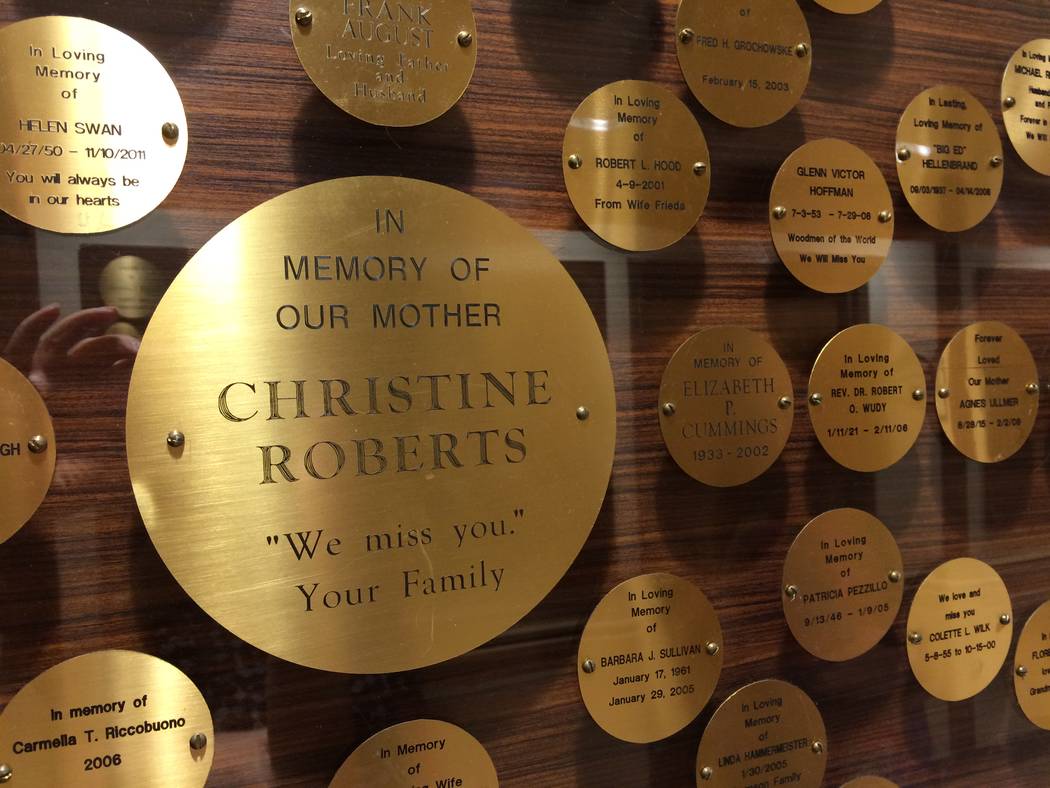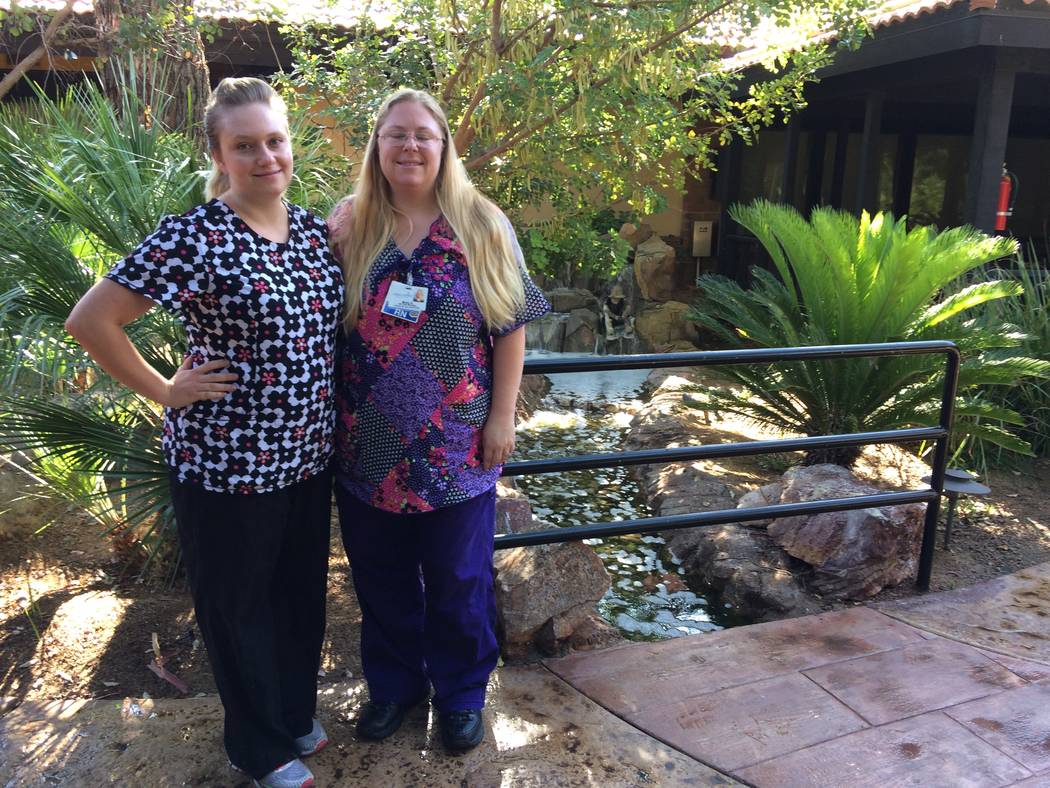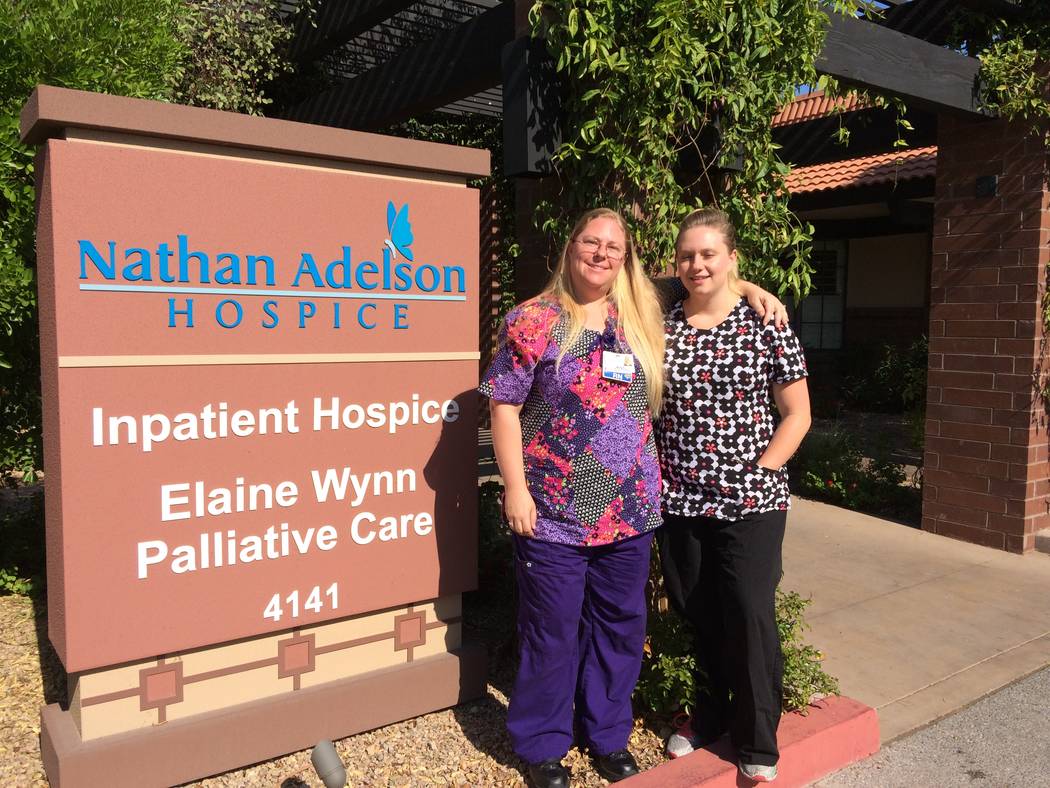Hospice nurses learn to cope with constant death around them
Nathan Adelson Hospice received a $10,000 grant from the NV Energy Foundation in May. The money went toward its uncompensated-care program, which provides hospice care to those who are uninsured or underinsured. Nathan Adelson Hospice estimates it provides $1 million in unreimbursed services to patients annually.
Not all the costs of giving hospice care can be marked in dollars. The nurses and caregivers experience emotional ones, too.
“It takes a special kind of person to do this,” said Dr. Christine Estrada, medical director at Nathan Adelson Hospice. “They have to be compassionate … When they report for team meetings, you can see how much their hearts are in it.”
The Swenson Street facility can handle 20 patients; the MountainView one can accommodate 18; together, they have about 46 deaths per week.
Estrada spoke of a 15-year-old boy who died of leukemia the day after he was admitted. He played the same sports as her daughter and was about the same size.
“He was here one day before he passed away; it was very hard,” Estrada said. “I had to talk with Pastor Tom about how not to project that onto my daughter.”
His advice, she said, was to take a step back, as though she was an observer and not the person in charge.
Nathan Adelson has about 200 hospice nurses. Two spoke with View. Misty Ashworth, who lost her grandmother to lung cancer two years ago, said she can see a caseload as high as 19 people.
“It’s made me a better hospice nurse because I’ve experienced it (losing a loved one) myself,” Ashworth said.
She and her colleague, Jade Petersen, have cried after patients die.
“Usually it’s someone I’ve deal with for a long time because I’ve gotten to know the family,” Ashworth said.
Petersen recently experienced her first pediatric death.
“Seeing the mother’s grief,” she said, “it was tough to suck it up and go to my next client. … I just had to sit down and cry for a good 10 minutes.”
The strain of the job also can cause problems falling asleep, they said.
“I always try to include them in my prayers and that helps me fall asleep,” Petersen said.
They’ve noticed that most people seem to die on the late-night shift.
“Like 2 in the morning. I’ve seen patients wait until family members are not in the room until they pass,” Ashworth said.
Ashworth has been working in hospice care for five years and witnessed more than 100 people take their final breaths, she said. She has had dreams about them, especially those who had a difficult time with their pain medications. Talking with her significant other at home helps.
“Once I talk with him and get it off my chest, I can deal with it,” she said.
Both nurses said they feel honored to be there when someone is about to die.
“I (watched) a peaceful death a little while ago, and it was beautiful,” Petersen said. “It made me feel good the rest of the day. She was 84; she’d lived her life and her pain level was not bad at all.”
After someone dies and they go in to change out the sheets, both said that, “without a doubt,” they can feel the person is still there.
Ashworth recalled a 54-year-old woman with cancer who died at home with her entire family around her.
“The atmosphere was kind of jovial because she wasn’t suffering any more,” Ashworth said. “Afterward, one of the kids said, ‘Hey, Ma, if you’re still here, can you give us a sign?’ Every light in the house was on and all of them flickered at the same time. … It happened three times.”
She paused.
“I’m getting goosebumps telling this,” Ashworth said, rubbing her arms.
Petersen saw electric doors that have “never had a glitch” swing open right after a woman died.
“They just flew open for no reason at all. Just, wham!” she said.
Experiences like those, they said, help them deal with the death they see daily.
“People have this weird idea that hospice is dark and doom and gloom and sadness, but most of the time it’s uplifting, a spiritual thing,” Petersen said. “You’re going to experience things you’d never experience otherwise.”
Contact Jan Hogan at jhogan@reviewjournal.com or 702-387-2949.
Nathan Adelson Hospice
The organization was founded after Nathan Adelson, a hospital administrator, died of stomach cancer. It was established in 1978 as Southern Nevada's first home-care hospice. Today, Nathan Adelson is the the sole nonprofit hospice in the valley and serves more than 350 patients daily.
Source: Nathan Adelson Hospice

























